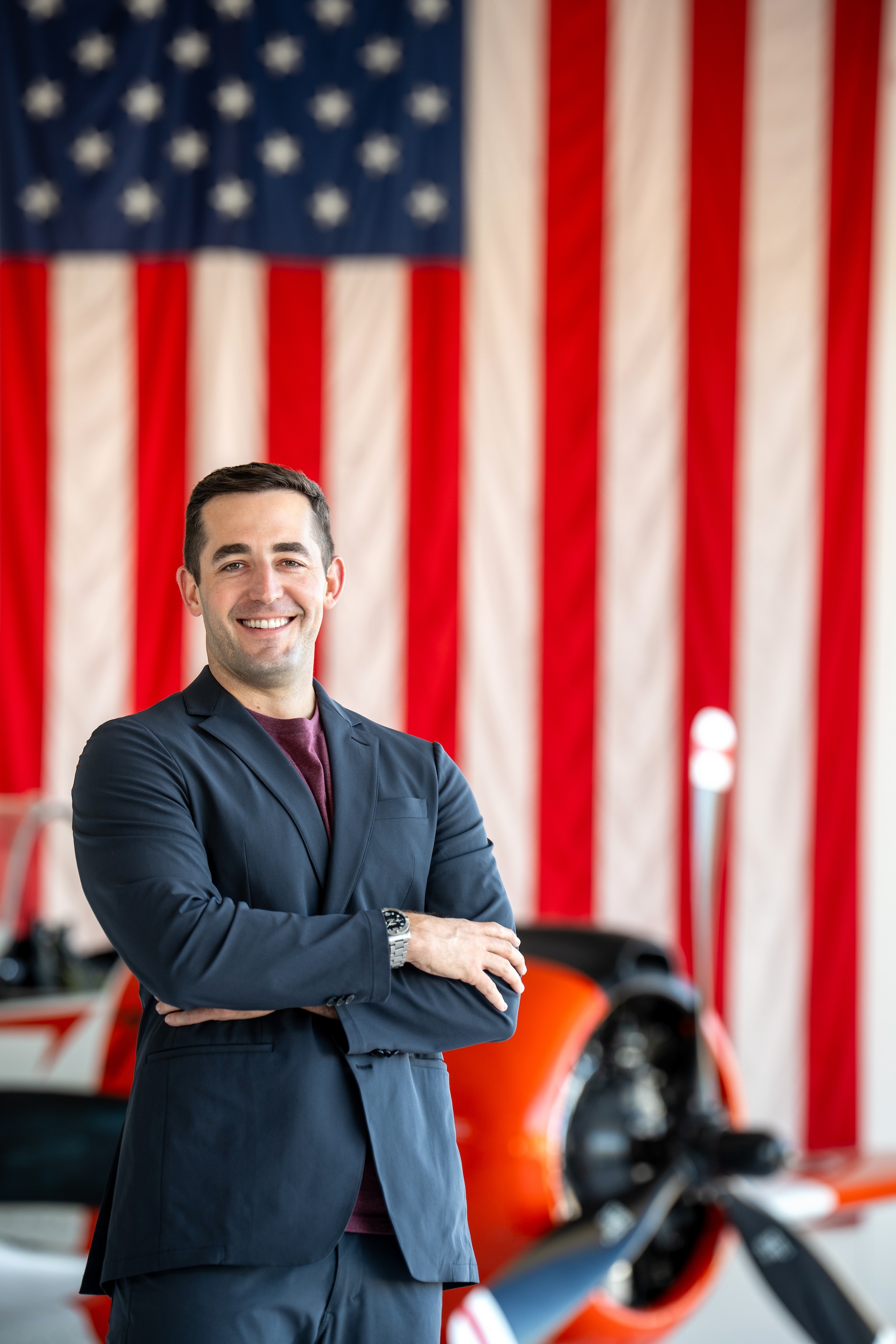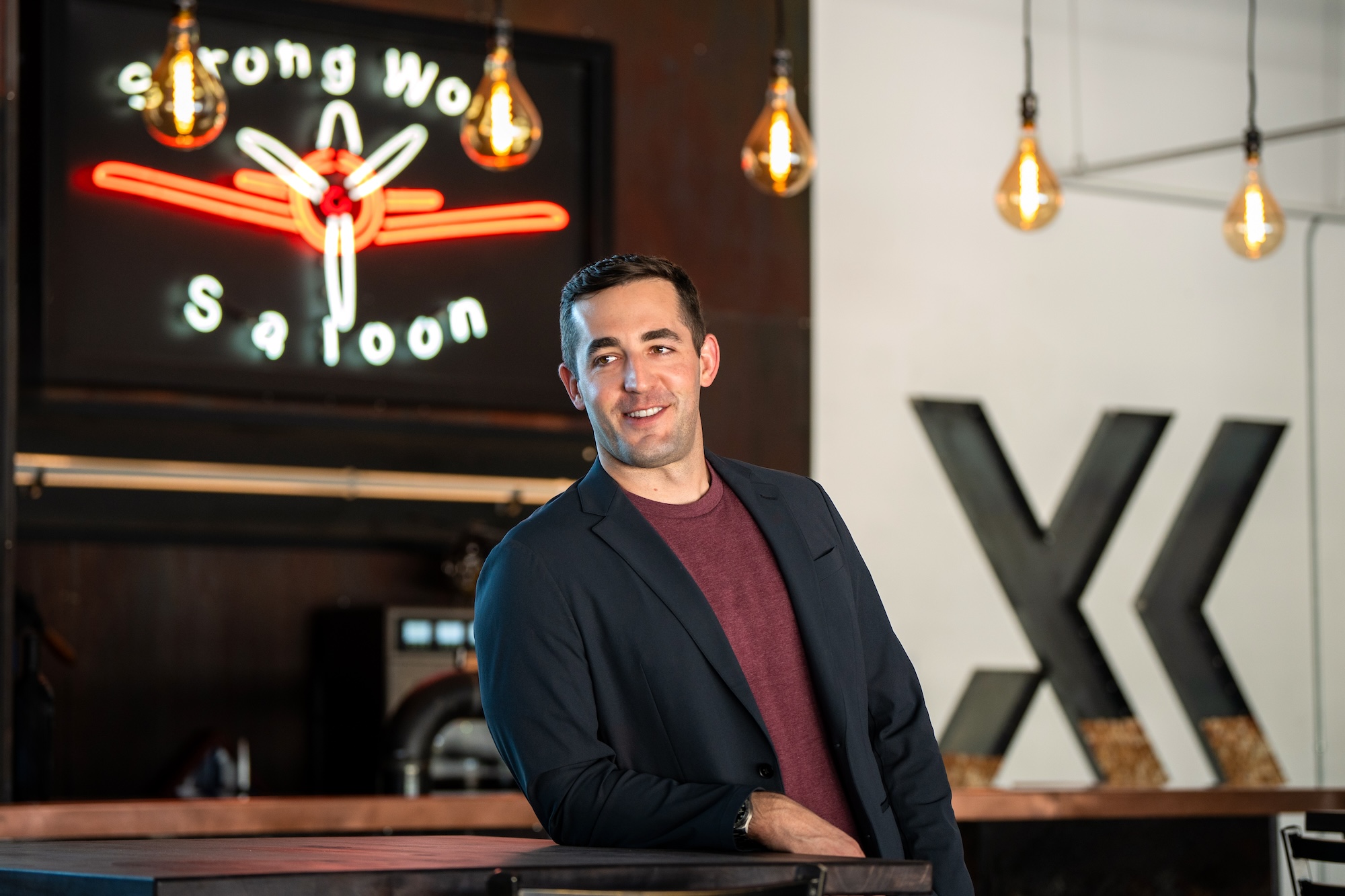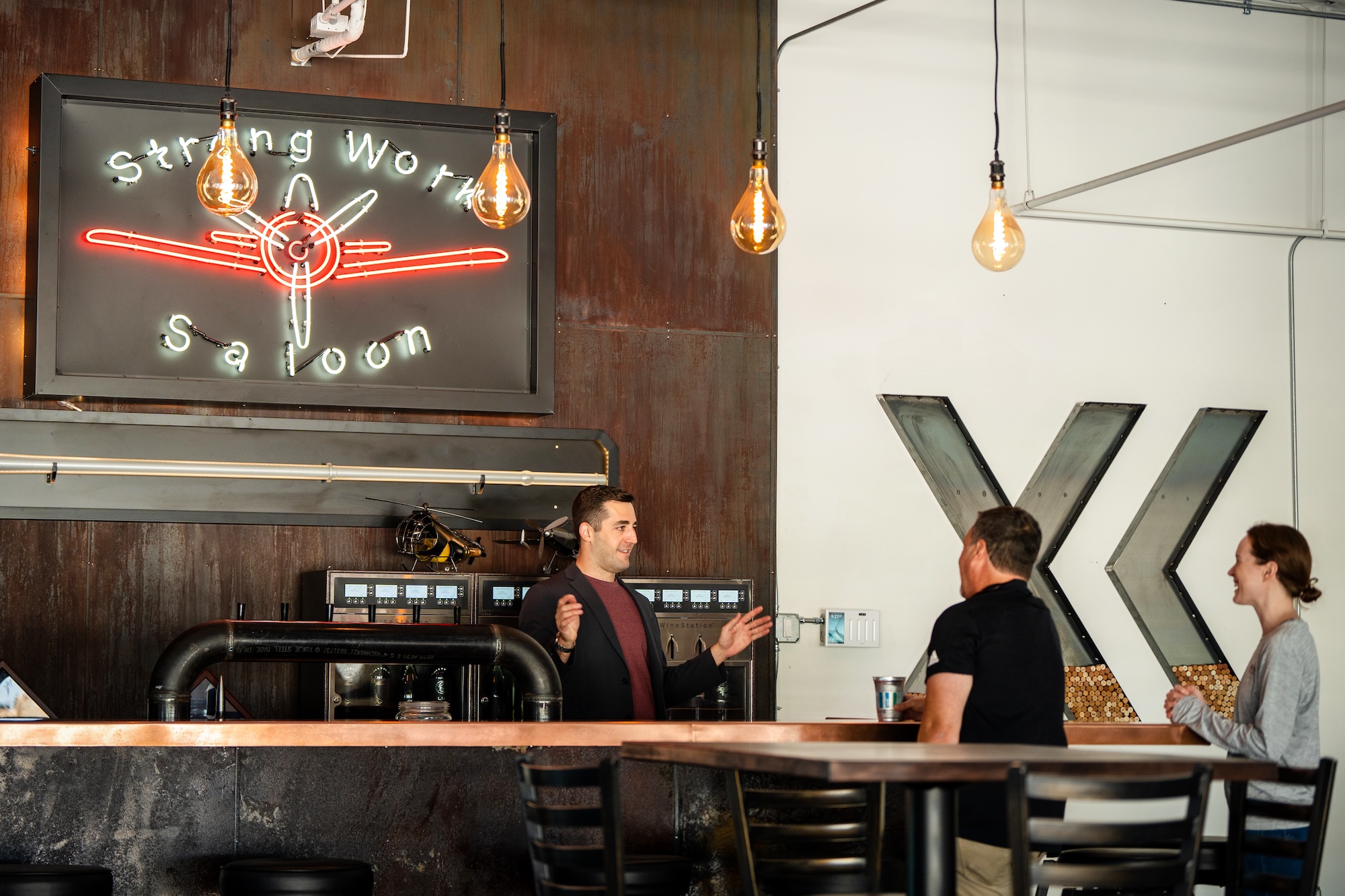
W. P. Carey MBA helped Air Force pilot Mike Shufeldt reach entrepreneurial dreams
Mike Shufeldt (MBA '23) knew that a Full-time MBA degree from ASU’s W. P. Carey School of Business would help him make a big leap in his career. By the end of his first year in the program, he had already achieved his goal of starting a business, and he now has two companies under his belt.

For those who have the drive and passion for entrepreneurship, receiving the right education can be the extra step needed to become a successful business owner.
Mike Shufeldt (MBA '23) knew that a Full-time MBA degree from ASU’s W. P. Carey School of Business would help him make a big leap in his career. By the end of his first year in the program, he had already achieved his goal of starting a business.
"I was able to immediately utilize what I learned in the program," he says. "My first year in the MBA covered a lot of foundational skills. Being able to take that and translate it to the business that we were running was amazing."
Now with two companies under his belt — Ignite Healthcare Solutions, a healthcare consulting company, and Xcellerant Ventures, a venture capital firm — Shufeldt took time to speak to W. P. Carey about his MBA student experience, what being an entrepreneur is really like, and advice he has for aspiring business owners.
Why W. P. Carey?

Before beginning his MBA, Shufeldt had been an active member of the Air National Guard for around seven years and was looking toward his post-military career. At the time, he had a young family in Idaho and wanted to relocate to Arizona where he grew up. He also wanted to enter the business world and become an entrepreneur.
"I needed to transition from full-time military service and learn some hard skills that could apply to a business career," he says. "ASU made complete sense based on location, plus its focus on innovation. Being in Phoenix right now, I think, is a really interesting time for startups."
Shufeldt was drawn to the entrepreneurship and finance concentrations in the Full-time MBA program. Both areas of study continue to play a big role in current work for his companies.
"A class I took on entrepreneurial finance was one of my favorites," he says. "I use the models and financial valuation techniques we learned in that class to this day. I use it on the venture capital side when reviewing companies, and in our startup, Ignite."
Insights from a strategy course have also made a lasting impression. "I gained so much knowledge on how to think about long-term strategy and look at a business to identify and maximize its strengths,” he says. “We learned to ask great questions. Where are the gaps? How can we fill these gaps and capitalize on strengths?"
Shufeldt cites the Executive Connections mentorship program, a unique opportunity available in the ASU Full-time-MBA, as a life-changing experience. “I meet and talk to my mentor, a lifelong entrepreneur, to this day,” he says. “He’s been there for me to bounce ideas off and talk about business growth. A lot of the thoughts I have on employees, including who to hire and who to keep, are drawn from our conversations. I’m thankful for the lasting connections I made in the program."
Why entrepreneurship?
Founding a business is always easier with a partner. Shufeldt found the perfect fit with his wife, whose previous work experience in healthcare consulting helped them build Ignite Healthcare Solutions while he was still in the MBA program. "She is an amazing consultant, and we were able to use her expertise to build this company and start bringing on a team, while I helped run the business and finance side.”
The two have been methodical about the growth of their company, wanting to make sure its expansion was sustainable and not reliant on outside funding. After two years, Ignite now has its own office in Scottsdale, Arizona, with 15 employees making up the team, and Shufeldt as the Chief Financial Officer.
"It’s kind of at this turning point now, but obviously, in the beginning it was scary and quite exciting," he says of the experience of starting this venture.
His other company, the Phoenix-based venture capital firm Xcellerant Ventures, is also within the healthcare industry, where Shufeldt has carved out a niche for himself. As one of the few health tech-focused venture capital funds in the U.S., Xcellerant invests in startups from around the country, with products like medical devices, software, or anything else healthcare-related.
Shufeldt admits he's "not good at focusing on one thing," calling it "a blessing and a curse." This penchant for multitasking has helped him get to where he is today, and he credits his time at W. P. Carey for helping refine that skill.
"Each day I start by figuring out what the highest priority items are and checking some of those off, which helps the lower hanging fruit fall to the wayside,” he says. “If you're smart and good at what you do, which I'm trying to learn how to be, you can build a team around you that can help fill the gaps of what you're unable to do."
What's next?

As both companies emerge from their startup phases, Shufeldt looks forward to implementing processes that propel each venture through intentional stages of growth.
"That’s something I learned in my military career and honed in the MBA program. Building solid processes for the growth of the company that future employees can utilize is key," he says. "Startups are fun, but there's also a bit of flail where everyone's doing whatever they think is best. That works for a while, but there comes a point where you need to get everyone on the same sheet of music.”
“I'm excited to guide the growth of these businesses around the processes we've put in place, and we’ll tweak as we go," he adds.
As a local alum, Shufeldt regularly speaks to students who are considering starting their own businesses at W. P. Carey events and through the Center for Entrepreneurship and New Business Design. Having found a relatively untapped market for his ventures, he advises aspiring entrepreneurs to strike the right balance between novelty and demand for a product or service.
"At Xcellerant, we see a lot of cool businesses that are actually solutions in search of a problem," he says. "The biggest issue I see with new entrepreneurs is they have an idea that they thought of and validated with close friends and family who have similar ideas or similar beliefs to them. They believe it’s going to work and put their heart, money, and time into this idea, without validating the approach with outsiders and with customers. Research is critical."
Ready to learn more about the ASU MBA?
Request information directly from our graduate recruiting team. We can't wait to meet you!
Latest news
- Pop culture is key to effective teaching
How a management and entrepreneurship professor uses Ted Lasso and other pop-culture touchstones…
- Artificial intelligence in business master's degree helps Nathan Merriman combine business strategy with technology
Nathan Merriman (MS-AIB '25) had been working in business for a few years when he learned about…
- How the Executive MBA empowered Scott Gates to be a mission-driven leader
Scott Gates (BS Marketing '04, Executive MBA '15) had a very positive experience during his…